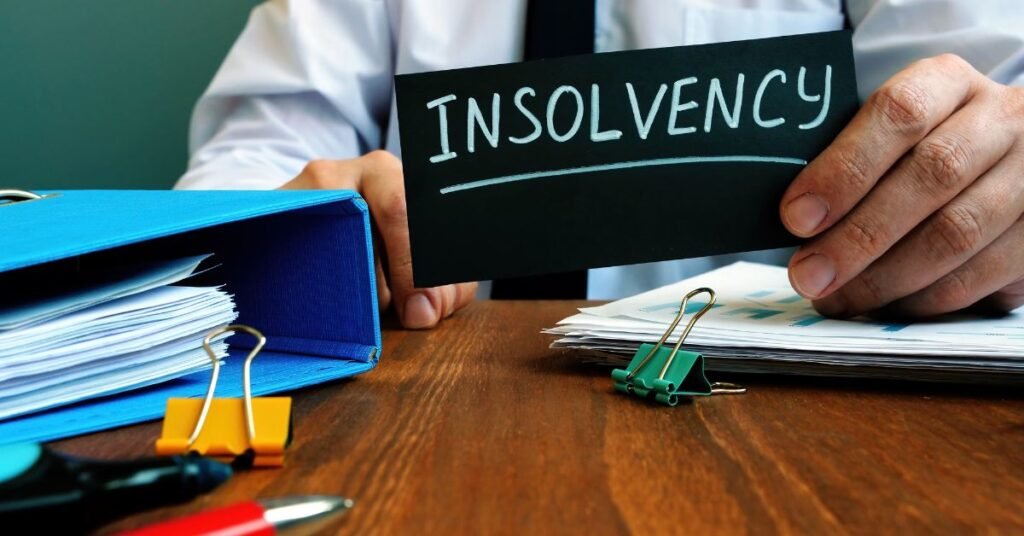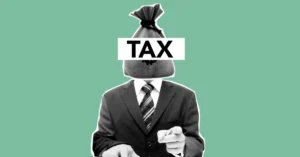We have previously discussed the UAE Bankruptcy Law, which applies to commercial companies and traders. A separate law, the UAE Personal Insolvency Law (Federal Decree-Law No. 19 of 2019), deals with the insolvency of natural persons. The law aims to protect individuals facing financial difficulties and those who are unable to pay their debts.
Table of Contents
ToggleWhat is Personal Insolvency Law?
In most cases, people facing financial difficulties leave the UAE without settling their debts, which can lead to many legal consequences. One should always try to settle all their debts before leaving the UAE. If that is not possible, a debtor can file an application under the Personal Insolvency Law, which provides an opportunity to pay debts via a settlement plan or apply for Bankruptcy.
Key Procedures for Financial Settlement Under UAE Insolvency Law
Court Procedures and Documentation for Filing Insolvency in the UAE
For initiating financial settlement under the Law, a debtor is required to submit an application to the Court with several documents, such as:
– a brief description of the debtor’s financial position,
– a statement of names and addresses of creditors,
– details of the debtor’s movable and immovable properties,
– details of any legal or judicial proceedings against the debtor,
– debtor’s proposal to settle his financial obligations,
– nomination of experts, etc.
Expert Involvement in Financial Settlement: A Crucial Aspect of UAE Insolvency Law
If the application is accepted, the Court appoints one or more experts to assist the debtor in the settlement proceedings. During the pendency of the settlement proceedings, the creditors are prohibited from taking any recovery actions and initiating liquidation proceedings against the debtor.
The Expert is required to prepare a list of all creditors and a report on the debtor’s financial position. The report must also include the Expert’s opinion on the possibility of a financial settlement. Thereafter, the Court audits the report to verify the debtor’s debts.
The Court may reject the application for financial settlement in the following cases:
1- If it is established that the debtor has concealed or dissipated any part of his funds,
2- If the debtor has provided any false information about his debts or funds,
3- If the debtor has ceased payment of due debts for over fifty (50) consecutive business days because of his inability to pay such debts.
If the Court is satisfied with the report, it instructs the Expert to prepare a settlement plan in consultation with the debtor. The Expert then invites the debtor and the creditors for a meeting to discuss and vote on the proposed settlement. The following persons are prohibited from participating in the creditors’ meeting and voting:
1- The debtor’s spouse.
2- Any person financially supported by the debtor.
3- Relatives of the debtor up to the second degree.
Understanding Liquidation Proceedings in UAE's Personal Insolvency Framework
A debtor shall apply to the Court to initiate liquidation proceedings if he has ceased payment of due debts for over fifty consecutive business days due to his inability to pay such debts.
A creditor or a group of creditors may also commence liquidation proceedings against the debtor if the total amount of their debts is not less than AED 200,000, provided that the debtor has been formally notified to pay the debt and it failed to do so within fifty (50) consecutive business days from the date of notification.
The Role of Trustees in UAE Insolvency: Liquidation and Asset Distribution
If the application is accepted, the Court appoints a Trustee to conduct the liquidation proceedings. The Trustee invites creditors to submit their claims within twenty (20) working days from the date the Court’s decision is published in newspapers. After auditing creditors’ claims, the Trustee prepares a report on the debtor’s financial position. Upon reviewing the report submitted by the Trustee, the Court determines which claims are acceptable.
Thereafter, the Trustee liquidates the debtor’s assets and distributes the proceeds among the creditors according to the order of priority specified in the Law. After the final distribution, the court issues a decision to close all liquidation procedures.
Such a decision includes a list of the names of creditors whose debts are accepted, their amounts, and what has been fulfilled. The decision is published in two local daily newspapers, one in Arabic and the other in English.
During the pendency of the liquidation proceedings, all legal and judicial enforcement proceedings against the debtor and his assets are suspended (except in case of secured debts or privileged debts subject to the court’s approval).
Seek Expert Guidance with S.K. Legal
Navigating the intricacies of insolvency requires more than just knowledge; it demands experience, expertise, and a deep understanding of the local legal landscape.
We at S.K. Legal provide the following services:
- Comprehensive legal consultancy: Whether you’re dealing with civil or commercial disputes, our expert team is ready to provide you with the best legal advice.
- Support during negotiations: Our legal advisory services extend to assisting clients during crucial negotiations, ensuring their interests are always protected.
- Collaboration with local law firms: We understand the nuances of local jurisdictions, so we collaborate with licensed local law firms to oversee court cases, especially in the DIFC, Dubai, and Sharjah courts.
For personalised assistance and advice, contact us at [email protected]
Frequently Asked Questions about UAE Personal Insolvency Law
The Bankruptcy Law applies to commercial companies and traders. The Personal Insolvency Law is a separate law that deals with the insolvency of natural persons.
The following funds are excluded from liquidation proceedings:
- Pension or social benefit provided to the debtor.
- The debtor’s funds are necessary to meet the debtor’s and his dependents’ needs, as determined by the Court (The Court’s decision in this regard may be challenged within five (5) working days from the date of its issuance).
The Trustee may apply to the Court for the sale of the debtor’s place of residence. Upon hearing the application, the Court shall consider the following factors:
- The interest of the creditors.
- If the Debtor has another suitable place of residence.
- The number of the debtor’s family members living with him and depending on him.
- The adequacy of the price derived from the sale of the debtor’s house for the purchase of another place of residence (in accordance with the prevailing social conditions).
- Any other humanitarian or social aspects related to the debtor.
- Absence of any legal or regulatory obstacle for sale.
Secured creditors take precedence over other preferential or ordinary creditors to the extent of their collateral. The following categories of debt are deemed preferential debts and have priority over ordinary debts.
- Judicial fees and expenses, including the fees and expenses of the Expert and the Trustee.
- Expenses disbursed by a Court order to serve the creditors’ common interest in preserving and liquidating the debtor’s assets.
- End-of-service gratuity and wages owed to the debtor’s workers and employees.
- Alimony and maintenance imposed on the debtor by an order issued by a competent court.
- Amounts due to government agencies.
To file for personal insolvency in Dubai, you must apply to the court, including a detailed description of your financial position. This involves listing creditors, assets, any ongoing legal proceedings, and a proposal for settling financial obligations. The court then appoints experts to assist in the settlement process.
It’s essential to understand the specific legal requirements and steps, which can vary. For a comprehensive guide, consult SK Legal Firm, a legal team of experts in insolvency in Dubai.
The Law stipulates penal provisions for both creditors and debtors. Any creditor who commits any of the following acts shall be punished by imprisonment and a fine of not less than ten thousand (10,000) dirhams and not exceeding one hundred thousand (100,000) dirhams or either of them:
- If he makes a claim relating to a fictitious or simulated debt against the debtor.
- If he illegally imposes additional debts on the debtor.
- If he votes on decisions relating to the settlement of the debtor’s financial obligations at any meetings, knowing that he is legally prohibited from doing so.
- If he knowingly enters into a special agreement with the debtor granting him special benefits to the detriment of the rest of the creditors (after the commencement of liquidation proceedings).
The Law further provides that a penalty of imprisonment for a period not exceeding two years and a fine of not less than twenty thousand (20,000) dirhams and not exceeding sixty thousand (60,000) dirhams or either shall be imposed on anyone declared insolvent, if it is proved that such insolvency declaration has caused a loss to his creditors as a result of the following acts:
- Spending large sums in Mudaraba (i.e., a profit-sharing contractual arrangement between an investor and a managing trustee), although not required by his usual business, or in the purchase of services, goods, or materials for personal or domestic use, that are not commensurate with his distressed financial situation, or in gambling, knowing that this may harm his creditors.
- Paying the debts of one of the creditors to the detriment of the remaining creditors within six (6) months before submitting his application for financial settlement or liquidation proceedings.
- Disposing his assets in bad faith for a price less than the market price or resorting to fraudulent acts to prejudice creditors to delay the declaration of his insolvency.
- Paying any debts or disposing of any assets knowing that such acts violate the terms of the settlement plan.
Disclaimer
This publication does not provide any legal advice and it is for information purposes only. You should not rely upon the material or information in this publication as a basis for making any business, legal or other decisions. Therefore, any reliance on such material is strictly at your own risk.
Share This Post On:
Sameer A Khan
Let SK Legal be your trusted partner in navigating Insolvency and Bankruptcy Law
Don’t navigate these challenges alone. For personalised assistance and advice on personal insolvency law in the UAE, contact us at [email protected].







